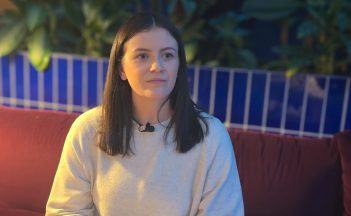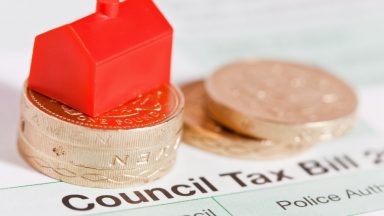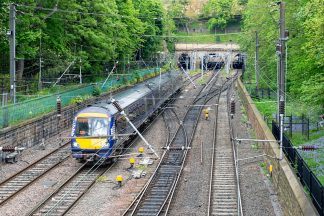Nearly 90% of all planning applications to convert properties into Airbnb-style accommodation in Edinburgh have been rejected since new rules were announced in 2022, according to a freedom of information (FOI) request.
The data, obtained by the Gilson Gray law firm and seen by the PA news agency, showed that of the 632 planning applications for short-term lets made to the council in the last two years, 566 were refused.
Landlords must apply for licences to run short-term lets following national legislation passed by MSPs in 2022. Those who fail to comply with the regulations face a fine of £2,500.
In Edinburgh, new operators must apply for planning permission before applying for the licence.
For properties that have been used as a short-term let for more than 10 years, a certificate of lawfulness is required instead of planning permission.
Gilson Gray’s FOI showed the success rate for these properties was much higher at 75%, compared to just 10% for those who needed planning permission first.
But the law firm said that because Edinburgh is also a short-term let control area, properties operating such businesses that are not within someone’s principal home are also required to get planning permission.
Karen Gatherum, solicitor and licensing specialist at Gilson Gray, said: “The number of rejected planning applications for short-term lets lays bare the disconnection between the licensing and planning processes because of the way the legislation has been written.
“Securing a licence was made out to be the difficult part of the process for short-term lets operators and received most attention but planning has turned out to be the issue – 90% of the planning applications made have been rejected.”
Ms Gatherum said the rules mean those wishing to buy a property to let out on a short-term basis “may want to seriously reconsider”.
She added: “It is taking up to nine months to determine licences and up to six months for planning – during which time you’ll be unable to operate and, in all likelihood, you will be rejected on one side of the process. It’s a system that has been set up to fail.”
The cost for submitting planning permission is usually about £600 per 100 metres square of floorspace, although it depends on the local authority. Landlords may also be required to apply for other certificates.
Gilson Gray said one Edinburgh landlord, who rents his home while he is abroad on business, was served with a planning enforcement notice despite the property being his primary residence.
The man, who wanted to remain anonymous, said: “I’ve been letting my flat out since June 2022 for the periods while I’m away on business or returning home, with no issues before the introduction of the new system.
“When it came into effect, I applied for and was granted a home letting licence from February 2024 to continue operating on that basis.
“However, at the beginning of May 2024 – less than 80 days after receiving my licence – I was served with an enforcement notice by the council requiring me to cease all short-term letting activities by May 30, because I need planning permission to operate.”
The man said that he appealed the council’s decision but was unsuccessful.
He said: “Have spent a lot of money trying to make this work, but it feels like it is a long and deliberately complex process designed to make you give up.”
Karen Gatherum added: “These cases should not require planning permission, as there is no material change of use – but many of them are being served with an enforcement notice.
“There needs to be clearer communication and consistency about the process, who it affects, and in what way.”
Tenants’ union Living Rent said the new system in Edinburgh is a “step in the right direction”.
Eilidh Keay, chairwoman of the Edinburgh branch, said: “Edinburgh Council are finally putting their money where their mouth is and denying unnecessary and expensive short-term lets planning permission.
“The unchecked surge in holiday lets over the past decade has led to countless tenants forced out of the communities they call home.
“We need a city that works for the people, not just the people who benefit from the tourism industry.
“Short-term let landlords have been buying up homes built for long-term residential use only to turn them into unaffordable holiday lets.”
Ms Keay called for further restrictions on STLs and claimed there are still a “considerable number of operators evading the rules” around licensing and planning permission.
She urged Edinburgh to follow Barcelona and ban Airbnb.
Council leader Cammy Day said Edinburgh’s visitor economy must be “managed and sustainable”.
He said: “Our short-term let controls have been an important step in the right direction.
“Scottish Government planning policy requires that when determining short-term let planning applications we look at the loss of a property as a home and weigh that against local economic benefits, as well as looking at if there are unacceptable impacts on local amenity or the character of a neighbourhood.
“We also look at each planning application individually.
“In terms of licensing, our new regulations have been in place for over a year and early signs are promising that they are helping to keep visitor accommodation safe and well-managed in Edinburgh.
“We’ve always said that it is important to monitor their impact and so we recently asked businesses and visitors how they’ve found the changes.
“We’re considering all of the feedback we received at the moment and we’ll report back to the regulatory committee in the coming months.”
Follow STV News on WhatsApp
Scan the QR code on your mobile device for all the latest news from around the country


 PA Media
PA Media
























